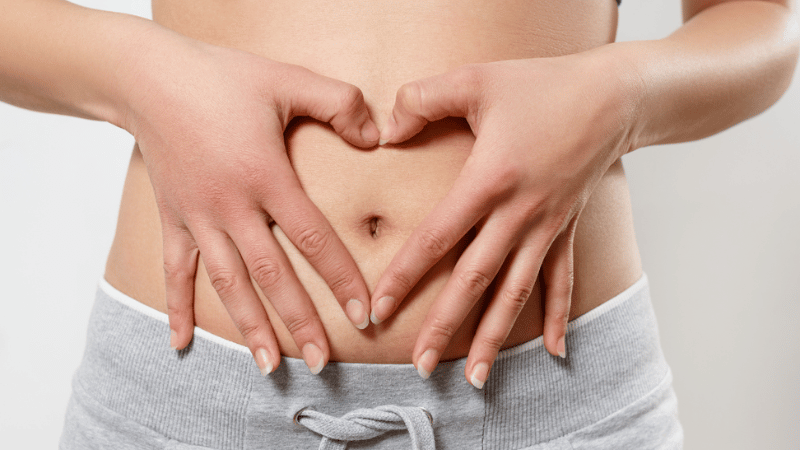
For women with uterine fibroids who want to have children, there’s no doubt there’ll be worries about the relationship between fibroids and infertility.
Being the most common tumor in women, uterine fibroids are associated with a higher prevalence of infertility. Understanding the link between fibroids and infertility can help ease anxieties and help make treatment decisions.
At USA Fibroid Centers, our specialists recognize the prevalence of uterine fibroids and their potential impact on fertility. Most women with fibroids may be able to conceive and carry a baby to term successfully, but the journey may not always be easy.
With advancements in medicine, tailored fibroid treatments can address many of the fibroid symptoms and risk factors, paving the way for a successful pregnancy.
STAY AHEAD OF YOUR HEALTH WITH OUR NEWSLETTER
Understanding Fibroids
Fibroids are benign tumors on the smooth muscle of the uterus and are common among women of reproductive age, particularly those over 35 years old.
Fibroids may not only impact your fertility but can cause various symptoms such as:
- Painful cramps
- Heavy bleeding
- Anemia
- Bloating
- Constipation
- Incontinence
Doctors are not sure what causes fibroids, but risk factors such as family history, genetics, and vitamin D deficiency are connected to fibroids.
Types of Fibroids
Understanding the relationship between uterine fibroids and infertility requires knowledge of the different types of fibroids, typically identified by their location.
The three most common types of fibroids are:
- Subserosal fibroids grow on the uterus’s outer wall into the pelvic or abdominal cavity. They are more likely to cause symptoms impacting the bladder, rectum, or intestines.
- Intramural fibroids develop within the muscular layers of the uterine wall, and smaller-sized ones typically cause mild symptoms.
- Submucosal fibroids grow in the innermost lining of the uterus or endometrium. They are the most likely to cause heavy menstrual bleeding.
Aside from the above common types of fibroids, there are two other kinds which are determined not by their location but rather by their characteristics:
- Pedunculated fibroids attach to the uterine wall by a stalk or peduncle. They have two subtypes: pedunculated subserosal fibroids (outside the uterus) and pedunculated submucosal fibroids (inside the uterus).
- Calcified fibroids have outgrown their blood supply and are experiencing fibroid degeneration, where they essentially die. After degeneration, calcium deposits may develop on top of the leftover fibroid tissue and harden. Calcified fibroids are most common after menopause but can occur during a woman’s reproductive years.
Since different types of fibroids grow in various locations in or around the uterus, knowing which kind you have provides a better idea of their impact on fertility.
Do Fibroids Cause Infertility?
While many women with fibroids can conceive and carry pregnancies to term without significant issues, for others, it can be a major obstacle. Even during delivery, many women have to get a C-section due to their fibroids.
The link between uterine fibroids and infertility depends on their location and growth pattern within the uterine walls. Some of the ways fibroids may cause infertility include:
- Changing the shape of your cervix so fewer sperm can enter.
- Changing the shape of the uterus to block sperm or embryo movement.
- Blocking your fallopian tubes.
- Impacting the size of your uterine cavity lining.
- Reducing blood flow to the uterine cavity so an embryo cannot be implanted.
Exploring treatment options, crafting a tailored birth plan, and working with medical professionals are necessary when handling uterine fibroids and infertility.
Uterine Fibroids and Infertility FAQs
Can Fibroids Prevent Pregnancy?
Fibroids can grow during pregnancy as there is an increase in estrogen and progesterone levels in your body. In terms of conceiving, fibroids rarely prevent women from getting pregnant.
Although fibroids are more likely to grow during pregnancy, many women don’t experience symptoms or even realize they have fibroids until after their first ultrasound.
Contact your doctor if you are pregnant and experiencing symptoms such as:
- Pain
- Fever
- Nausea
- Increased level of white blood cells
- Fatigue due to anemia
- Bleeding
Typically, you cannot treat fibroids while pregnant, but there may be options available to relieve symptoms temporarily. Also, some fibroid symptoms can be signs of pregnancy complications, so talk to a medical professional for an accurate diagnosis.
How Do You Know if Fibroids are Causing Infertility?
If you are struggling to conceive and think you may have fibroids, you might be wondering if there is a connection between the two. The best way to find out if fibroids are causing infertility is by consulting a fibroid specialist, especially if you are experiencing symptoms. Our symptom checker can also provide further insight into whether fibroids cause the symptoms you are experiencing and if you should consult a doctor for an official diagnosis.
Which Fibroids Cause Infertility?
Each type of fibroid is associated with causing specific symptoms. When it comes to infertility or pregnancy complications, submucosal fibroids are most likely to cause issues. Submucosal fibroids and infertility are firmly linked, as they can disrupt implantation and embryo growth.
What Size of Fibroids Can Cause Infertility?
There are three different size classifications for fibroids: small (between 20 mm and 5 cm), medium (Between 20 and 60 mm), and large (More than 60 mm).
Smaller fibroids tend to cause mild symptoms, while larger fibroids are more likely to have relatively severe symptoms, such as infertility.
Treatment Options for Fibroids and Fertility
Navigating treatment for fibroids is critical, especially when considering the risks of fibroid surgery on fertility. How each procedure influences the ability to conceive and carry a pregnancy to term is crucial for informed decision-making. There are several options for fibroid treatment, including:
- Hysterectomy: This surgical procedure removes the uterus, resulting in a woman being unable to conceive or be pregnant. It’s a permanent solution with significant drawbacks. Hysterectomies entail immediate sterility but also necessitate a prolonged recovery period along with risks of early menopause due to hormonal imbalances.
- Myomectomy: Unlike a hysterectomy, this surgical procedure preserves the uterus. A myomectomy removes fibroids from the uterine walls, leaving the uterus intact. However, there is potential for scarring and fibroid recurrence after a myomectomy. According to research studies, myomectomy postoperative adhesions significantly impact the ability to conceive. Therefore, when surgery is performed as infertility treatment, attention should be paid to whether the benefits outweigh the risks .
- Acessa™ Procedure: This emerging technique offers minimally invasive alternatives to traditional surgical approaches, utilizing radiofrequency ablation to target fibroid tissue. The main concern with Acessa™ is that the research about its impact on fertility is currently inconclusive.
- Uterine Fibroid Embolization (UFE): UFE is a minimally invasive procedure, and with its high success rate, the National Institute of Health reports it’s clear that UFE is one of the most promising methods for preserving fertility while addressing fibroids. UFE introduces tiny particles into the uterine artery, cutting off the fibroid’s blood supply so they shrink and wither away. The procedure ultimately alleviates fibroids symptoms without resorting to surgery. Most importantly, UFE leaves the uterus intact, allowing for conception and pregnancy post-treatment.
The choice of fibroid treatment ultimately depends on the size, number, and location of fibroids, age, and fertility goals. It is important to consult your doctor to understand the different treatments, the risks of fibroid surgery, and their impact on fertility.
Managing Fibroids for Fertility
Dealing with uterine fibroids and infertility can be challenging. However, there are ways to manage your condition and improve your chances of conceiving, such as:
- Talk to a Fibroid Specialist: Consulting a healthcare provider specializing in uterine fibroids and infertility is vital, as they can offer tailored advice based on your situation and goals.
- Maintain a Healthy Lifestyle: Maintaining a balanced diet and regular exercise can help improve fibroid symptoms and fertility outcomes.
- Manage Stress: Infertility and fibroids can be emotionally taxing, so finding healthy ways to manage stress can benefit your mental and reproductive health.
- Track Symptoms: Track your fibroid symptoms and menstrual cycles to identify patterns and trends. If you have any concerns, you can discuss them with your healthcare provider during your visit.
Every person’s journey with uterine fibroids and infertility is unique, and there is no one-size-fits-all solution. During this process, maintain open communication with your healthcare team and explore your treatment options.
Personal Stories and Testimonials
USA Fibroid Centers have helped many women with fibroid treatment to start living a happy, healthier life and reduce the risks of uterine fibroids and infertility. Listen to what our “Ladies of Lavender” say about their experience with UFE and USA Fibroid Centers below:
DR. SHETH WAS VERY INFORMATIVE & COMMUNICATION WAS EASY!
“I went to this clinic for issues with fibroids. The staff was very friendly and accommodating. Dr. Sheth was very informative & communication was easy. The treatment was painless and very successful! I would recommend this clinic to anyone who has issues with fibroids and would like to undergo less invasive treatment!”
CANDACE P. – Decatur, GA
THEY GAVE ME ALL MY OPTIONS
“It was a painful journey but, thanks to this place I got better. At 25, I was diagnosed with fibroids and a cyst after experiencing massive pain on my right ovary. I felt alone. No doctors wanted to do anything with a young girl like me. The only procedure they knew of was a hysterectomy and at 25 that is definitely not happening; not even if I wanted to just end the pain, I was going through everyday.
Dr. Gunzenhauser explained all my options when it came to helping me. I was amazed by the different options I was given. It seemed like a never ending list. He suggested a fibroid embolization. Two weeks of recovery and I was back on my feet in no time.”
ASHLEY – St. Nicholas, NY
To hear more from our “Ladies of Lavender,” visit our testimonials page.
Schedule Your Consultation with USA Fibroid Centers Today
You can start your fibroid treatment with USA Fibroid Centers today by scheduling a consultation online or calling 855.615.2555.
Resources
1. Frontiers in Surgery Myomectomy in infertile women: More harm than good?
2. National Institute of Health Pregnancy and Success Rates After UFE.



